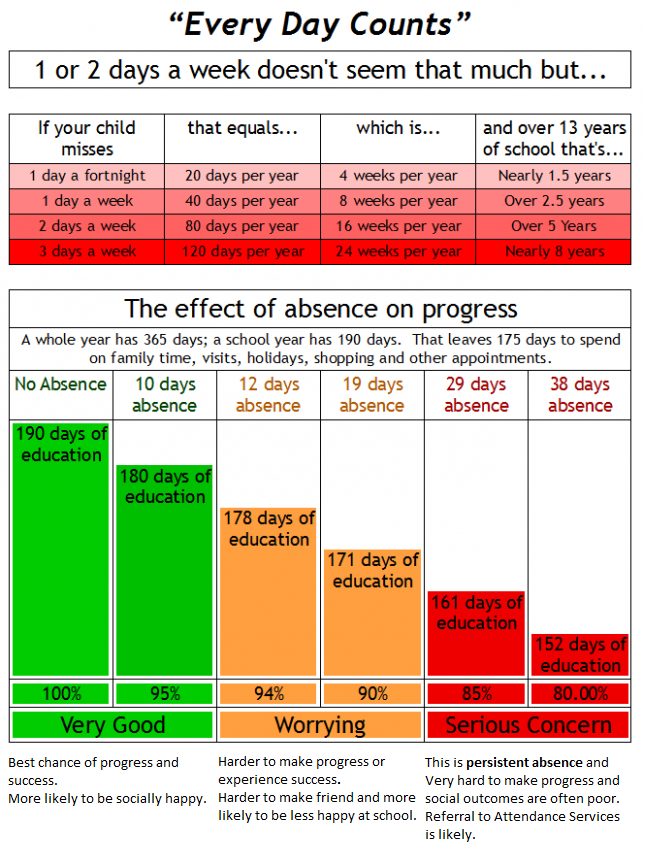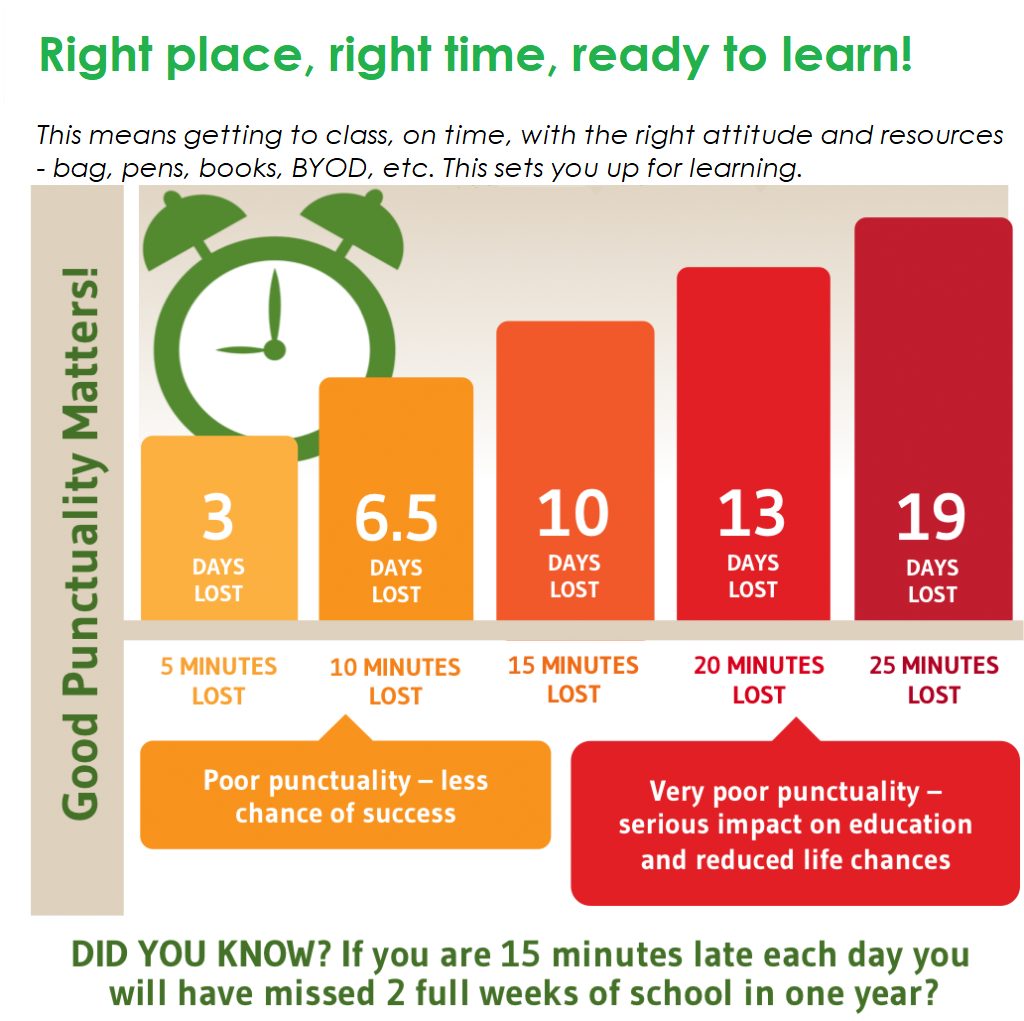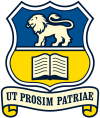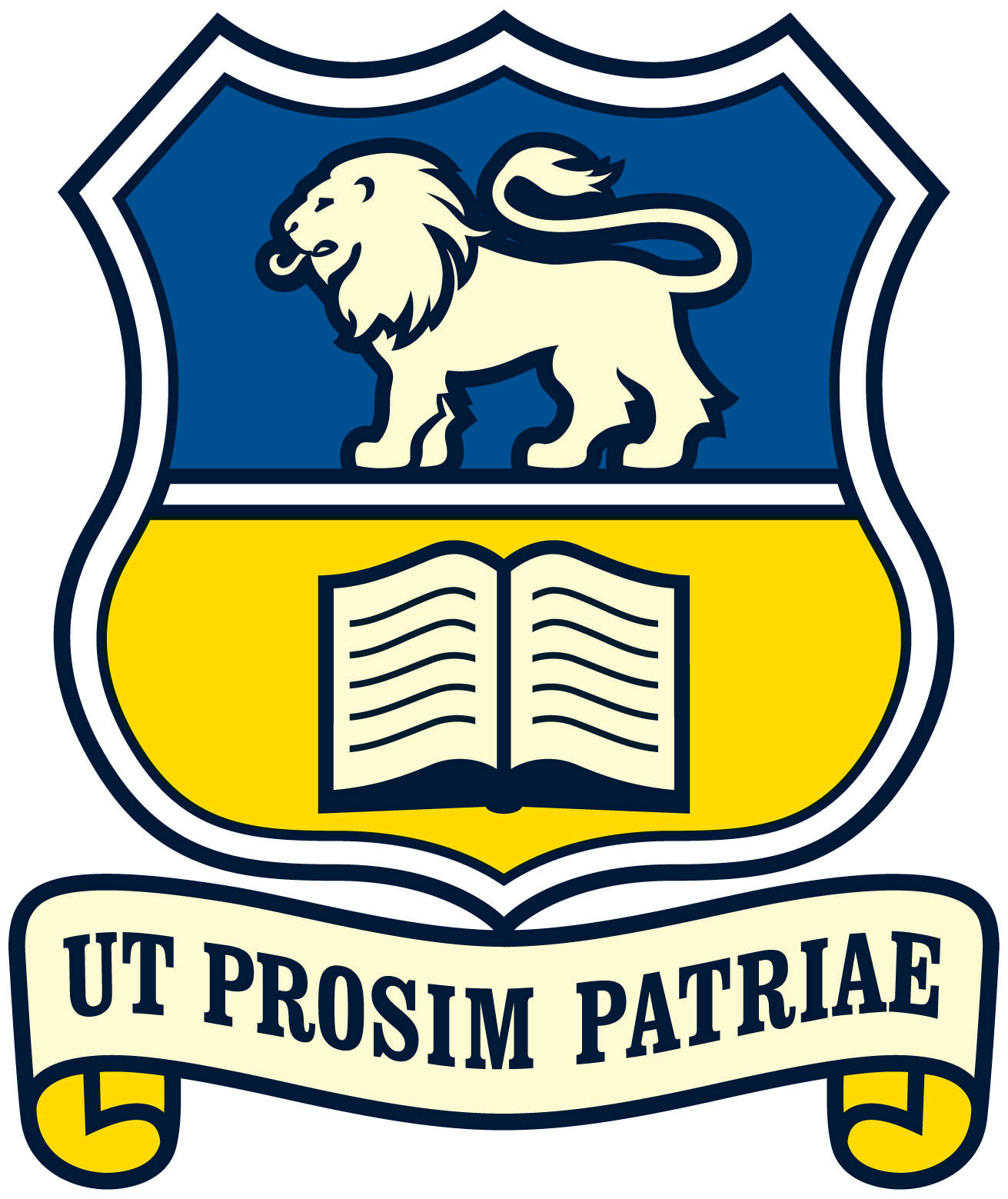Attendance, absence, lateness and leave
Attendance
- High attendance at school correlates strongly with positive socialisation, engagement with learning, stronger academic achievement, and general wellbeing. We are fortunate that most students at Thames High School have great attendance and give themselves the best opportunities to achieve great results.
- Under Section 36(1) of The Education and Training Act (2020) – “the Act” – all registered students at a school must attend when it is open for instruction, unless there is a justified reason, such as sickness, sudden and serious illness of a parent, or other equally serious situation that means a student cannot attend.
- This is true for all students enrolled at the School, regardless of age, as the school has a legal responsibility to ‘take all reasonable steps to ensure that the school’s students attend the school when it is open’ (Section 36(2) of the Act). This means the School must follow up absences and lateness with appropriate interventions.
- A period by period attendance check is carried out every day. Parents may access this record ‘live’ via the Web Portal (see below).
- Under the Act (Section 49) an Attendance Officer or Constable may, “if not satisfied that the person has a good reason for not being at school, take the person to the person’s home, or to the school”.
- Parents/guardians are responsible for their child’s attendance at school, and it is an offence if this responsibility is not met for students under the age of 16 (section 35 of the Act). In situations where a parent/guardian condones (by lack of action or explicit approval) the absence of a child, then there may be a prosecution, although this is a last resort (Section 49 of the Act)
- The other key legal requirement for the School is the need to keep accurate records of attendance [Education (School Attendance) Regulations 1951].
- For more about attendance please follow this link.
Absences
- Absence for illness or other unexpected causes must be explained by the parent or caregiver either by note, text or by phone call. All absences known in advance must be approved by a Deputy Principal in advance, using the official leave request form. Application for leave for planned absences must be received one week prior to the start date, unless under urgent circumstances (e.g. bereavement). The purposes of the form are to notify teachers of planned absence and to allow parents and students to consider the implications on assessments or preparation for assessments that could be affected by the leave request.
- To report an absence either:
- Phone the school on 07 868 8688. You can leave a message with the office.
- Send a note to your student’s Rōpū/Whānau Kaitiaki (Teacher) prior to the absence (if the absence is anticipated).
- Email attend@thameshigh.school.nz
- We no longer receive text messages due to a change in our communication systems as of September 2023.
- No matter how you contact us, please make sure you let us know: the students name, year level and the reason they are not at school.
- Without a reason the records must show this as ‘unjustified’ absence.
Concerns about attendance
- The School is very concerned if attendance falls below 90%, as students’, learning, progress, achievement and overall wellbeing are negatively affected by lower attendance. 90% is the minimum expectation by the Ministry of Education for ‘regular attendance’. While 90% is ‘regular’ it still means a student misses an average of 1 in 10 days of school, which equates to almost 100 hours of lost learning time. “Every day counts” illustrates the loss of learning caused by absences.
- If there is anything we can do to help support attendance at school please make contact with the School.
- Regular or persistent unexplained absences may be referred to Attendance Services so that an Attendance Officer may support the the return to regular attendance. This may result in family group conferences and other interventions.
- Students with attendance below 90% may not be eligible to participate in optional school activities e.g. representing the School in co-curricular activities, the Year 13 Leavers’ Dinner, the School Ball etc. or may have privileges such as Study periods or town lunch (Year 13) removed. If a student’s attendance affects eligibility to participate in such activities, then appeals can be made to the Deputy Principal in charge of monitoring attendance.
- The School does acknowledge that exceptional circumstances may affect attendance, and it is vital that we maintain open communication about the reasons for absence. For extended periods of absence, verified medical or other professional documentation is required.
Assessments and Absences
- Any absences that affect or occur on NCEA internal assessments (e.g. test, exams, or assignment due dates) MUST be explained by a medical certificate otherwise there is no chance of any credit.
- A note from a parent/caregiver is insufficient – this is the same requirement as for external examinations for NZQA.
- Students and parents are advised to refer to the School’s National Qualification Framework booklet.
- There is no obligation for the School to modify assessment dates if they fall in the period of any requested leave. For further information, refer to the School’s National Qualification Framework booklet.
Punctuality – being on time
- Being on time means getting the most from lessons and will typically mean a student is ready to learn. This means aiming to arrive 10-15 minutes before the scheduled start of the day and being ready to learn with all the right materials.
- A student who is late to school may not be ready to learn, will miss instructions, and may disrupt the class on entry. Every minute counts.
- If a student is absent 5 minutes once a week that is equivalent to missing 1.5 hours of instruction. Being late by 5 minutes once a day adds up to 16 hours (or 3 days) of lost instructional time.
- Students arriving late to school because of tardiness or before-school appointments must sign in at the Student Support Office. Students will receive a date-stamped Late Pass to show classroom teachers. The office will record the lateness and record the time and note if the reason is justified (for example a dental/medical appointment or unjustified (for example, transport problems). If the lateness is due to an early morning dental/medical appointment, then please present the appointment slip to Student Support Office when signing in to justify the lateness.
- The School is aware that occasionally other circumstances cause a lateness outside of the control of the student or parent/guardian. This is expected to be a rare event, but in such circumstances, please provide a suitable explanation to the office (i.e. written note/email). This will be recorded by the office.
- Students who are very late to school may be recorded as absent. For instance, if the student arrives with only 15-20 minutes of the class left then it is more accurate to record the student as absent.
- If students are late at any other time, they should have a note to explain why from a staff member (e.g. meeting with another teacher). If not, the class teacher must mark the student as late.
- If a student does not have a late note from a staff member, then they must be reminded to bring a note next time. Sending a student to ‘get a note’, is not acceptable as it just reinforces the lateness. Any explanation must then be provided to the Rōpū/Whānau Kaitiaki.
- If students are significantly late without reason (beyond 5 minutes) then their Dean or Deputy Principal will be notified.
Consequences for unexplained absent (truancy) and unjustified lateness
- Students who are late or have unexplained or unjustifiable absence (i.e. truancy) from school or any class during the school day may be subject to consequences to encourage a change in behaviour.
- For example, after three ‘late to school’ a student may be required to ‘catch up time’ to reflect on the importance of punctuality or catch up on work missed. An email will be sent to parents/guardians informing of the consequence.
- For example, if a student is truant then a parent/caregiver will be notified, and the student may need ‘catch up time’ to reflect on the reason missing class is disadvantageous or catch up on work missed.
- Should the lateness or truancy become more regular, then a family / Whānau conference may be convened to discuss how the student, parent/guardian and School can work together to encourage good attendance and punctuality requirements. A range of supports may be discussed, including referral to guidance counsellors, the nurse, or external agencies.
- As noted earlier, attendance below 90% for all students, regardless of being justified or unjustified, may affect eligibility for optional activities e.g. School Ball, Graduation Dinner, or other school events.
Staying at School
Students are required to stay in the School grounds during the school day (including interval and lunchtime). This is essential for the School to carry out its duty of care. We cannot ensure safety away from the school.
Exceptions:
- In the case of sickness, dental or medical appointments, provided prior approval has been obtained from Student Support Office, the Guidance Counsellor and/or the School Nurse
- For any other reason with the prior approval of a Dean or Deputy Principal who will issue an Exit Pass (student must still sign out/in)
Year 13 students who have off-site study approval. Study is marked on a student’s timetable.
Year 13 students who have permission to have lunch in town once permission has been granted (subject to change).
Failure to comply with this requirement will result in being considered out of bounds and/or truant from School.
Exit Passes:
Taiohi/Students must take any request or appointment details to the Student Support Office to have an Exit Pass issued at the start of the school day or interval. A verified written communication (note) or other verified written communication to the Student Support Office. Students with an Exit Pass are required to sign in and out of school on the tablet located at the Student Support Office and carry the Exit Pass with them at all times.
Parent/Student Portal
The Thames High School Web Portal provides parents and students access to detailed information and useful functions (including online payment of accounts). There are different levels of access (student or parent). The web portal may be accessed using any web browser at https://thameshigh.school.kiwi or using the KAMAR App available from the Apple Store (e.g. for iPad or iPhone) or Google Play (for Android phones or tablets). When you download the app, you will need to enter the domain: https://thames.mystudent.school.nz/ and then sign in with your user name and password (see below). If you have more than one student attending the school you will be given a login and password for EACH student. Students will be given their own password for this system. Queries about access should be referred to the SMS Administrator.
Homework
Homework is necessary for all high school students to ensure success in their studies. We thank parents/ caregivers for their support in ensuring homework expectations are met.
Travel
Students living at a distance of over 5 kilometres from the school may be entitled to free travel on the school buses provided to their nearest school. Buses cover five routes – Tapu, Puriri, Tairua, Pauanui and Kauaeranga.
Motor Transport
The school is responsible for students both at school and between home and school. Parents’ notes must support any students travelling by private car or motorcycle, whether they are driving or passengers. This privilege may be withdrawn for at least a term if abused. A record of the type of vehicle, registration and licence details is required by the school at the beginning of each year. This is processed on a term by term basis. Permission to bring a vehicle to school must be obtained from a Deputy Principal.
Travel & Boarding Bursaries
Some parents now board their students in Thames if they are remote from secondary education or if certain subjects are not available at their local school. Details of travel and boarding bursaries are available from the Ministry of Education.
Student Laptops
Students are highly recommended to bring their laptops to school. Laptops suitable for learning need to have at least a 11.6″ screen and be able to connect to the school Wi Fi.
Personal Digital Devices Policy
“No phones seen or used!”
Why we have this policy
- Personal digital devices, especially mobile/smart phones and associated accessories (smartwatches, ear pods, earphones, etc.), can be distracting to student learning when used for personal purposes during class time.
- These devices may hinder positive social connections, discourage physical activities, and impede face-to-face interactions.
- The misuse of phones for cyber-bullying, unauthorized photography or recording, and content sharing is a concern.
- Managing phones and accessories consumes significant staff time and leads to ongoing debates.
Purpose
- Ensure consistent expectations for personal device use across the school.
- Contribute to a safe emotional and physical learning environment.
- Promote the development of positive social and emotional skills.
- Establish corrective and disciplinary consequences for device misuse.
Guidelines
- Students are prohibited from using mobile/smart phones, smartwatches, or ear pods during the school day (8:40 am to 3:15 pm), including break times.
- Breach of this policy occurs if a personal device is observed or used during school established based on visibility or usage.
- Thames High School recommends that students do not bring phones to school.
- Devices are unnecessary during the day; urgent parent contact can be made through the Student Support Office or School Office.
- Parents/caregivers are urged to contact their children only outside school hours.
- The school is not responsible for lost, stolen, or damaged phones.
- Exceptions to this policy medical monitoring or other specialist needs must be approved by a Deputy Principal or the Principal and will result in a suitable exemption pass being issued.
- Learning devices (BYOD), like laptops, may be used on the School Network for Learning (N4L / WiFi). They must be registered and a single user access to the network will be provided.
- If a non-registered personal device is brought, it must be switched off and out of sight.
- Breaches will result in consequences outlined below.
- The use of digital devices during EOTC activities is at the discretion of the staff member in charge of the trip. It is not recommended that students bring devices on trips. Suitable limits will be in place for any overnight EOTC trips.
- Headphones/ear pods are not permitted during class, with exceptions for students on Individual Education or Behavioural Plans.
- Policy communicated to stakeholders with clear expectations and corrective responses.
- Any confiscated phones will be stored securely in the Student Support Office until they can be collected. Between confiscation and handing to the Student Support Office phones / devices must be secured; consistent with the Surrender and Retention of Property Policy.
- The policy still applies if the device has “been borrowed” from another student.
- The tumuaki/principal may suspend the policy for special events or needs.
- Any Procedures will follow the guidelines and procedures may be modified without full policy review.
Consequences
Breaches will be dealt with as follows, maintaining natural justice and adhering to tikanga:
First breach: Device or accessory confiscated, taken to Student Support Office for collection at the end of the school day. Parent contact, KAMAR entry, and email notification*.
Second breach: Device confiscated, retained until a parent can collect. Parent contact, KAMAR entry, and email notification*.
*An email will be sent to both the student and parent, advising them of the consequence and what another breach will mean.
Subsequent breaches may lead to disciplinary measures. This may include stand down or suspension for continual disobedience.
Consequences or steps may include:
- Meeting with parent/caregiver.
- Banning phone possession at school (not even in a bag).
- Community Service.
- Stand down.
- Suspension pending board discipline meeting.
- Other appropriate options.
Failure to surrender a device may escalate to Kaiāwhina for disobedience/non-compliance.
Consequences may be escalated to the deputy principal for repeated disobedience, leading to stand down or suspension.
Legislative compliance
Reviewed: Term 4, 2023 Next Review date: End of Term 1, 2024
Ratified: Monday 4 December 2023
Siobhan Flanigan, Presiding Member, School Board
Lunch Passes
Permanent
Where parents/caregivers require their child to go home for lunch or to their workplace on a regular basis, a permanent lunch pass may be issued once the school has received a written request from the parent/caregiver. Passes are only issued by the Deputy Principals. This permanent lunch pass entitles students to go only to their home or parent/caregivers workplace NOT to town.
Other students may not go to the home or workplace of a parent/caregiver of a student with a permanent lunch pass unless specific permission has been obtained from their parents/caregivers and approved by the parents/caregivers of the student whose home or workplace is being visited and the school is informed in writing.
Other Exit Passes
Refer to the section about staying at school.
Parent Involvement
Parents are encouraged to involve themselves in all aspects of school life and are welcome to contact the school whenever they have concerns, or they wish to exchange, provide or seek information.
A link to the school newsletter is circulated via email and then available to view on the school website. Copies are also available for students to take home (who do not have email access). These are available at the school office.
There are many ways in which we encourage Parents/Caregivers to be actively involved in their student’s education at Thames High School:
- Serving as a member of the School Board (elections every three years)
- Serving as a Sports Coach/Assistant
- Serving as a Sports Manager
- Supporter on the sideline
- Transporting students to venues
- Joining the Whānau Support Group
- Volunteering to assist with school camps
- Assisting with curriculum field trips
- Assisting with cultural group activities
- Volunteering/offering your skills and expertise.
Communications with the appropriate staff
The list below is a simple guide to areas of responsibility. We hope parents will feel free to contact the office to make appointments should they so desire.
- Absence notes, etc.: Rōpū/Whānau Kaitiaki (Teacher)
- Curriculum issues/concern about progress: Rōpū/Whānau Kaitiaki (Teacher) and/or Subject Kaiako/Teacher or Heads of Department.
- Learning Difficulties: Rōpū/Whānau Kaitiaki (Teacher) and/or the SENCO (Special Needs Coordinator)
- Discipline/Uniform concerns: Dean or Deputy Principals
- Guidance: Guidance Counsellor
- Careers: Careers Advisor
If for any reason parents feel that their contact has not been successful and wish to follow through further, please contact a Deputy Principal or the Principal.




